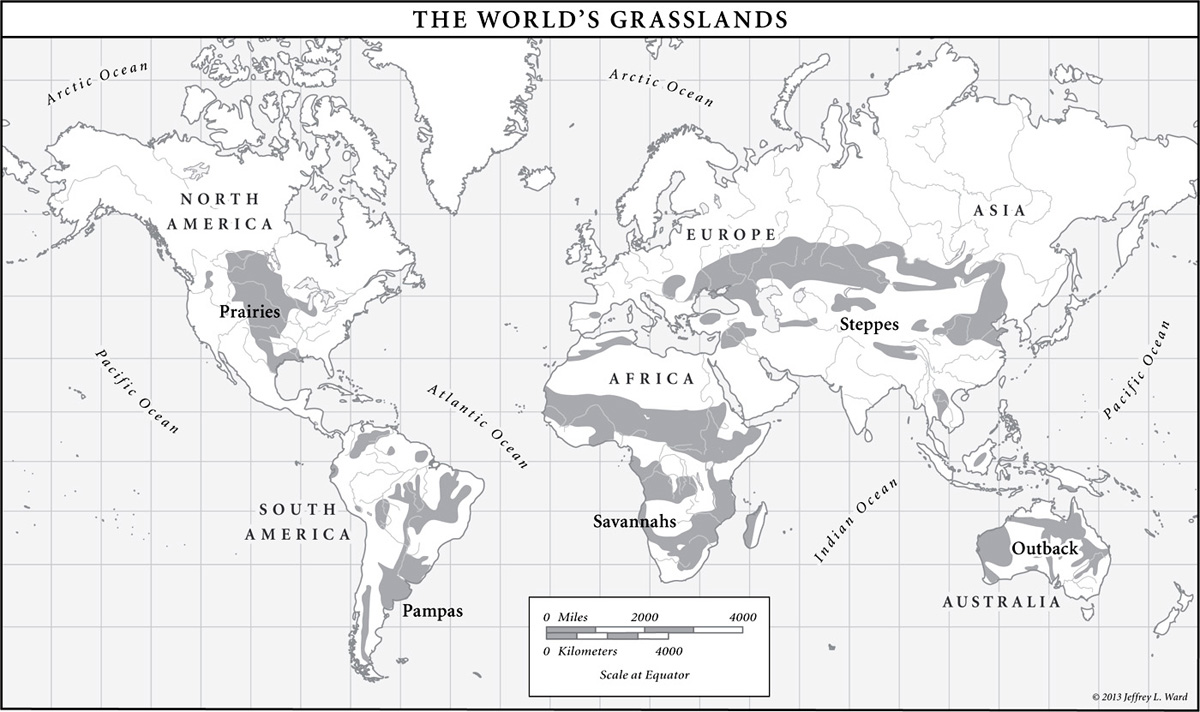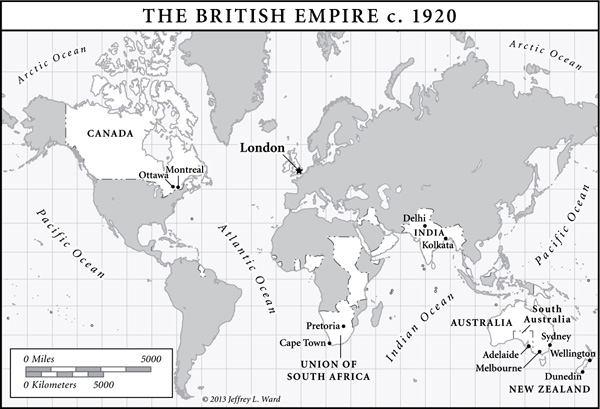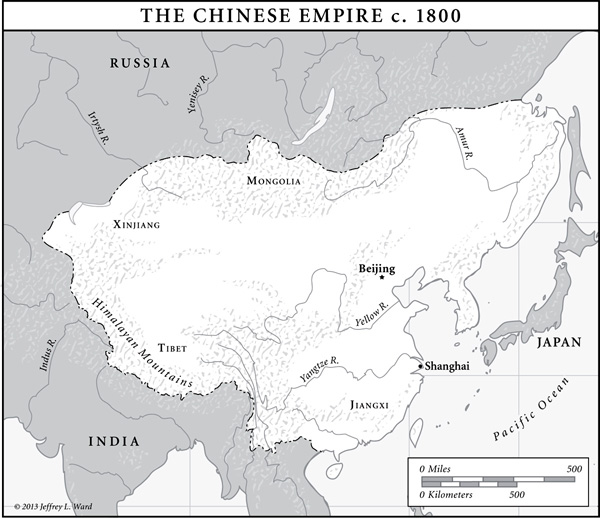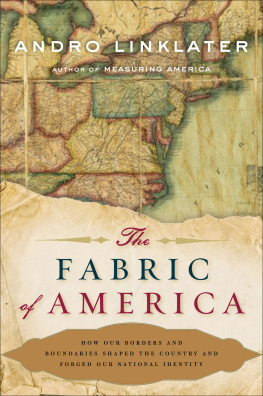Measuring America: How an Untamed Wilderness
Shaped the United States and Fulfilled the Promise of Democracy
The Fabric of America: How Our Borders and Boundaries
Shaped the Country and Forged Our National Identity
An Artist in Treason: The Extraordinary Double Life
of General James Wilkinson
Why Spencer Perceval Had to Die: The Assassination
of a British Prime Minister
The Code of Love
Wild People: Travels with Borneos Headhunters
Unhusbanded: The Life of Charlotte Despard, Socialist,
Suffragette and Sinn Feiner
The Black Watch: The History of the Royal
Highland Regiment

First published in Great Britain 2014
First published in 2013 in the United States
This electronic edition published 2013 by Bloomsbury Publishing Plc
Copyright 2013 by Andro Linklater
The moral right of the author has been asserted
No part of this book may be used or reproduced in any manner whatsoever without written permission from the publisher except in the case of brief quotations embedded in critical articles or reviews
All rights reserved.
You may not copy, distribute, transmit, reproduce or otherwise make available this publication (or any part of it) in any form, or by any means (including without limitation electronic, digital, optical, mechanical, photocopying, printing, recording or otherwise), without the prior written permission of the publisher. Any person who does any unauthorised act in relation to this publication may be liable to criminal prosecution and civil claims for damages.
Bloomsbury Publishing Plc
50 Bedford Square
London WC1B 3DP
www.bloomsbury.com
Bloomsbury is a trademark of Bloomsbury Publishing Plc
Bloomsbury Publishing, London, New Delhi, New York and Sydney
A CIP catalogue record for this book is available from the British Library
eISBN: 978-1-4088-2459-7
To find out more about our authors and books visit www.bloomsbury.com. Here you will find extracts, author interviews, details of forthcoming events and the option to sign up for our newsletters.
For George Gibson in friendship and gratitude





Introduction
The Birth of a Revolution
On September 29, 1583, swept across the eastern Atlantic. It caught the Golden Hind and the Squirrel, two ships led by Sir Humphrey Gilbert, a scientist and adventurer, as they returned to England from an expedition to plant the first English colony in North America. During the day, according to Captain Edward Hayes, master of the forty-ton Golden Hind, the waves were breaking short and high, Pyramid-wise... men which all their lifetime had occupied the Sea never saw more outragious Seas. Amid this chaos of white water, Hayes could see downwind of him the ten-ton frigate, Squirrel, that carried Gilbert.
As he watched, a furious blast of the gale suddenly threw the Squirrel on her side. At once, the Hind bore down to offer what help she could. But miraculously the tiny vessel righted herself and, to Hayess astonishment, Gilbert could be seen sitting in the stern, holding a book in his hand, and giving forth signes of Joy. As the larger ship surged past, Hayes remembered, [Gilbert] cried out unto us in the Hind, we are as neere to heaven by sea as by land.
Nothing about the valiant and learned Gilbert was predictable. A character in perpetual conflict, he contrived to be a soldier and a mathematician, openly bisexual, cruel enough to decapitate his enemies after battle then line the path to his tent with their severed heads, creative enough to imagine the growth of a new world beyond the Atlantic, and forceful enough to push through his pioneering expedition without adequate funds or manpower. Perhaps the most striking testament to Gilberts unorthodox character was his choice of a partner, Queen Elizabeths astrologer, John Dee, known as the Great Magus.
. While Gilbert adventured abroad, Dee had remained in Mortlake so that he could secretly study with his friend, Edward Kelley, how to transmute the base metal of lead into gold. But none of the Great Maguss esoteric arts possessed a power comparable to the magic that Gilbert carried to the newfound land beyond the Atlantic.
Its most obvious element was the wording of his royal charter. In response to Gilberts proposal to explore those large and ample countreys [that] extended Northward from the cape of Florida, Queen Elizabeth had given him permission to own , countries, & territories so to be discovered... with full power to dispose thereof, & of every part thereof in fee simple or otherwise, according to the order of the laws of England. Among the many different ways of possessing the earth, fee simple was, and is, tantamount to outright ownership. Any part of North America from Florida to Newfoundland not already occupied by any Christian prince or people could become his property to be sold, rented, or mortgaged as though he were in England.
A further ritual was needed to convert the wilderness into property. The land had to be measured, mapped, and registered in the name of its owner. Thus when Gilbert sailed in June with a tiny fleet of five vessels, the crew included surveyors armed with measuring poles and compasses. Although one ship commanded by his half-brother, Sir Walter Raleigh, immediately turned back, the remainder took the route followed for more than a century by fishermen from France, Portugal, and England to the Grand Banks off Newfoundland.
On August 5, 1583, Gilbert arrived at Saint Johns harbor to find almost forty fishing vessels already there, not only catching cod but drying and salting them onshore. Immediately the surveyors went to work, and, as Hayes put it, did observe [plans] of the countrey exactly graded [to scale]. Before the end of the month, the first transactions had taken place, and parcels of land along the waters edge were being rented out to fishermen who until then had occupied them freely. For which grounds Hayes pointed out, they did covenant to pay a certain rent and service. In return, Gilbert assured his tenants they now had the right to occupy their own particular spot from one year to the next.
On the face of it, Gilberts behavior was absurd. For uncounted generations the granite hills overlooking the long, dog-leg inlet of Saint Johns had been used by the Mikmaq people, who regarded it as their territory. The Basque fishermen who had discovered the sheltered haven perhaps before Columbus sailed to America in 1492 believed that they and any others who had the audacity to cross the ocean to fish for cod had earned the right to use the landing-grounds during the summer season. But that was as far as it went.
Yet now, under English law Sir Humphrey Gilbert asserted just such a right, and on that basis proposed to charge the fishermen rent for using a part of the wilderness for activities that they had always engaged in freely. For the first time, an idea that would revolutionize the structure of society and transform the way people thought about themselves had made itself known outside its homeland.














